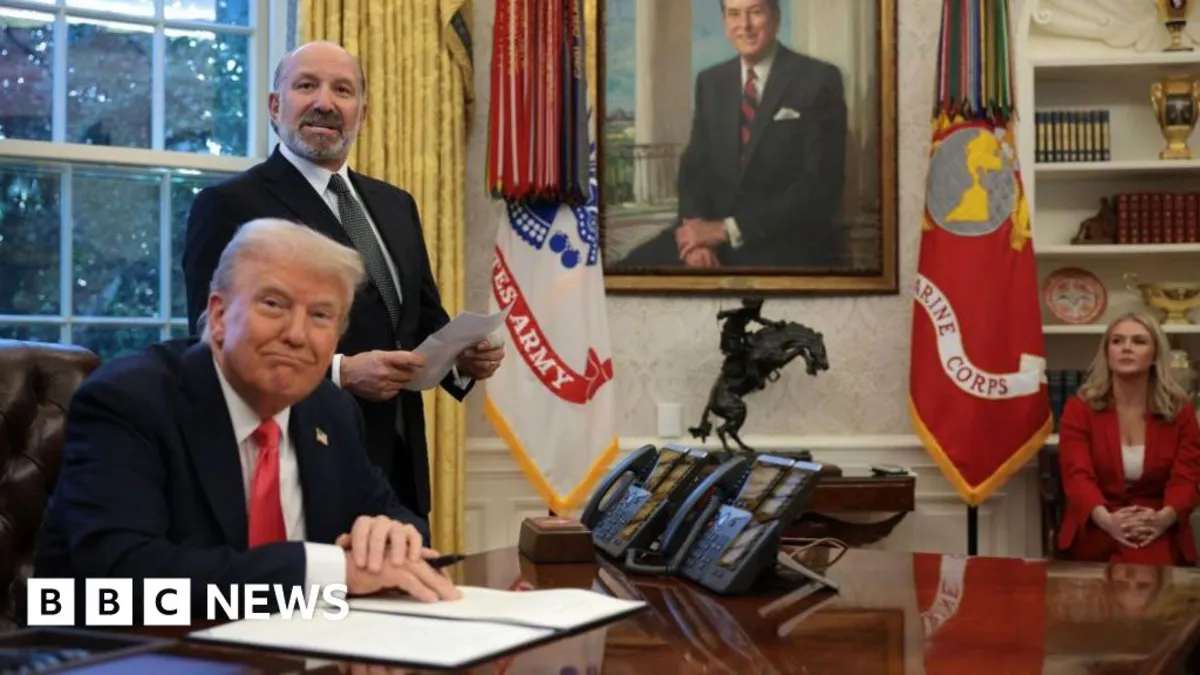
US President Donald Trump has announced plans to impose 25% tariffs on goods from the European Union (EU), alleging that the bloc was created to disadvantage the United States. Speaking to reporters alongside cabinet members, Trump stated, "We'll be announcing it very soon."
The proposed tariffs target a wide range of goods, including cars. In response, the European Union has vowed to react "firmly and immediately" against what it considers "unjustified tariffs." This announcement has raised questions about the president's broader trade policies, especially regarding upcoming tariffs on imports from Mexico and Canada.
President Trump hinted at the possibility of postponing tariffs on Mexican and Canadian imports, originally set for March 4, pending a review of those countries' actions on border security. Nevertheless, an administration official confirmed that the deadline remains in place. The president continues to criticize European trade policies, claiming they disadvantage American exporters of food and automobiles.
Trump's assertion that the EU was formed to "screw the United States" was promptly rejected by a spokesperson for the European Commission. The spokesperson emphasized that the regional market has benefited American companies by simplifying business operations in Europe. "We're ready to partner if you play by the rules," the spokesperson stated, adding that the EU would protect its consumers and businesses.
Tariffs are taxes on imports collected by the government, ultimately paid by the companies importing the goods. President Trump has pledged to use tariffs to boost US manufacturing, generate revenue, and influence global trade policies. Since taking office, he has imposed a 10% tariff on Chinese goods and considered other import duties, though some plans have been suspended, leaving businesses uncertain about future actions.
Tobin Marcus, head of US policy and politics at Wolfe Research, noted that the 25% tariff threat aligns with Trump's previous statements, describing it as "concerning" for the trans-Atlantic trade relationship. Earlier in the month, Trump ordered 25% tariffs on goods from Mexico and Canada, although these were delayed to allow for border security discussions. Trump indicated that the tariffs would take effect on April 2, coinciding with the Commerce Department's recommendations for reciprocal tariffs.
Following Trump's announcement, the Dow Jones Industrial Average, S&P 500, and Nasdaq declined in mid-day trading. Meanwhile, the Mexican peso and Canadian dollar gained value. Commerce Secretary Howard Lutnick clarified that the tariffs are distinct from those related to drug trafficking and migration concerns with Mexico and Canada.